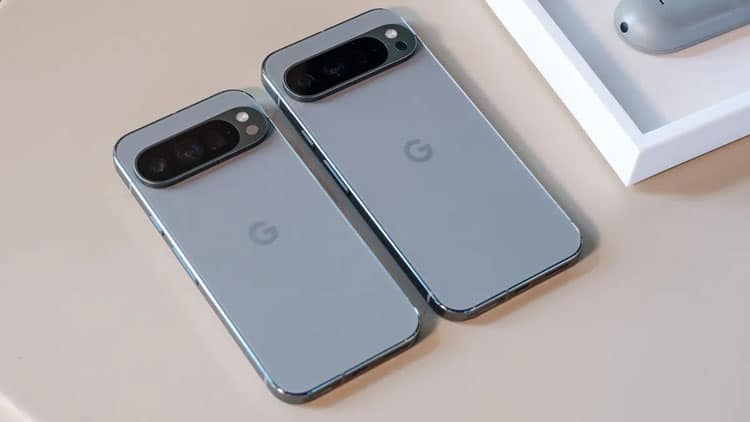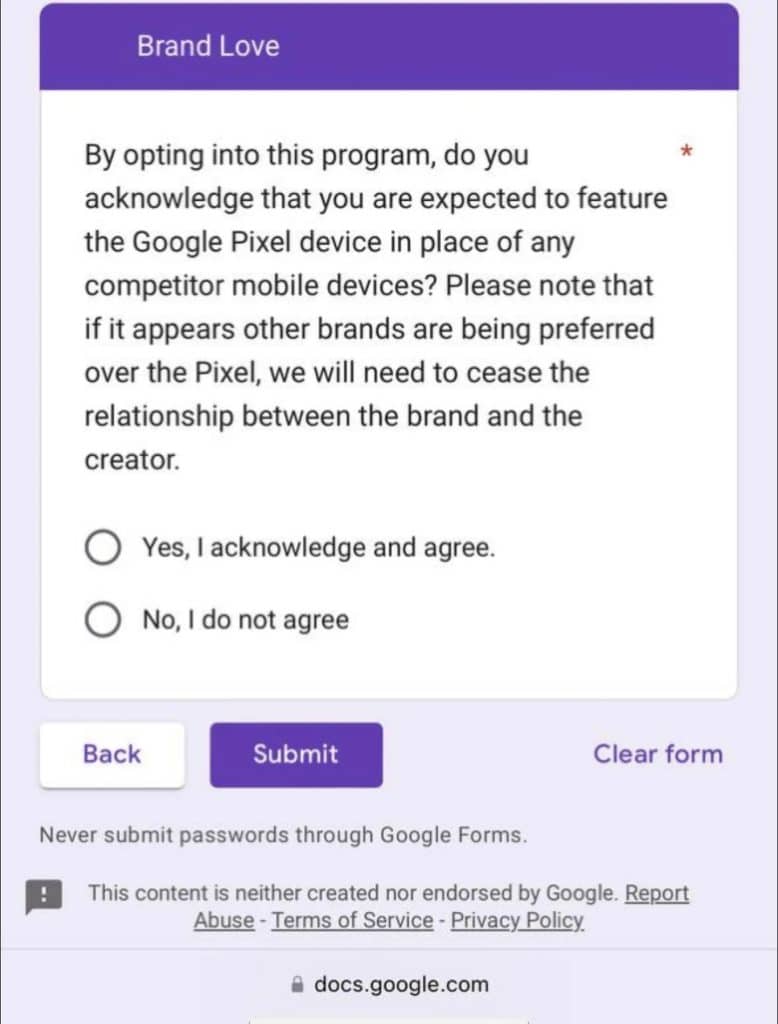Google crossed a line with the Pixel 9. The company’s invite-only Team Pixel program — which seeds Pixel products to influencers before public availability — stipulated that participating influencers were not allowed to feature Pixel products alongside competitors, and those who showed a preference for competing phones risked being kicked out of the program.
“#TeamPixel is separate from the press and creator reviews programs. The goal of #TeamPixel is to get Pixel devices into the hands of content creators, not press and tech reviewers. Google stated they missed the mark with this new language that appeared in the #TeamPixel form yesterday and has been removed.” The new terms meant choosing between keeping access or keeping their integrity.
How does Google extort publishers to accept her artificial intelligence?
According to Bloomberg, publishers are asked to choose whether to allow Google to use their published content to generate AI answers. However, they will lose their position in the company’s search engine if they disagree. This rule forces participants not to show the Pixel next to competing phones, and those who prefer the competition risk being kicked out of the program. However, the cost is even more significant since the new stipulation threatens their integrity and livelihood.
Below are screenshots of the clause in this year’s Team Pixel agreement for the new Pixel phones, which various influencers began posting on X and Threads last night. The agreement tells participants they’re “expected to feature the Google Pixel device in place of any competitor mobile devices.” It also notes that “if it appears other brands are being preferred over the Pixel, we will need to cease the relationship between the brand and the creator.” The link to the form appears to have since been shut down.
The new stipulation has upset many creators in the Team Pixel program.

A link to the survey appears to have since been shut down.
Those terms certainly caused confusion online, with some assuming such terms apply to all product reviewers. However, that isn’t the case. Google’s official Pixel review programs for publications require no such stipulations.
So then, what is Team Pixel, exactly?
The #TeamPixel program is managed by the PR agency 1000heads and gives devices to influencers and superfans before everyone else. 1000heads is a Social Transformation company that sends early units to influencers and superfans to drum up interest as brand ambassadors. While Google partners with 1000heads, it doesn’t directly run the program, and there are distinct differences from the traditional reviews program. While Google partners with 1000heads, it doesn’t directly run the program, and there are distinct differences from the traditional reviews program. For example, journalists and influencers in the official reviews program often get briefed and given products under embargo before or during an event. Team Pixel participants get the devices shortly after launch but before the public — all in exchange for some coverage on social media.
Popular tech YouTuber Marques Brownlee posted on X, clarifying that he wasn’t part of the Team Pixel program and was not beholden to those terms. Meanwhile, The Verge spoke with other independent reviewers and freelance tech journalists who say that they were grouped into the Team Pixel program for review units in the past. For those in the latter group. Matlock says he’s since quit the Team Pixel program over the new terms.
Influencer is a broad term encompassing all sorts of creators and should adhere to strict ethical standards, but many do not. The problem is that there are no guidelines to follow and limited disclosure to help consumers if what they’re reading or watching was paid for in some way. The FTC is taking some steps to curtail fake and misleading reviews online, but as it stands right now, it can be challenging for the average person to spot a genuine review from marketing. The Team Pixel program didn’t create this mess, but it is a sobering reflection of the murky state of online reviews.
The problem lies with Googlebot, Google’s crawler that scans web pages to integrate them into the company’s search results. If publishers refuse to let Google use their content for the AI company to provide answers to search results, they will also lose the right to be included in search results in general.
In practice, if publishers allow Google to offer AI answers to search queries, users are likely to stick with that answer and not visit a site, which means zero revenue for that site. If, on the other hand, publishers block Googlebot, they will not appear in Google results, again resulting in a loss of revenue. An AdWeek survey in March revealed that Google’s AI responses to search can lead to a 20% to 60% drop in site traffic.



